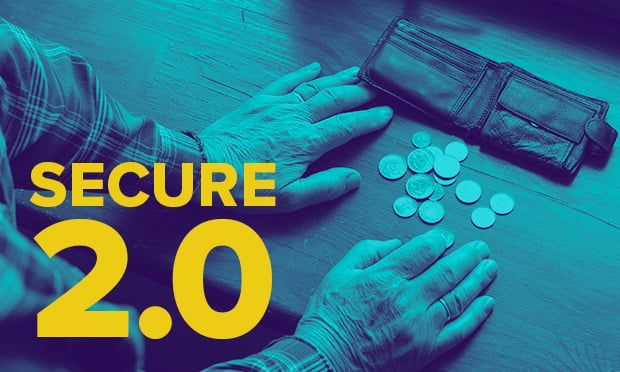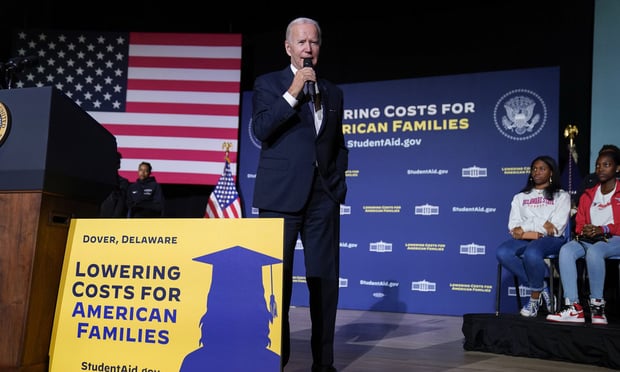You think your life is tough? Try being a millennial.
|Related: How millennials listen to financialadvice
|Sure, they have most of their life ahead of them, but that’sjust the problem – they have most of their life ahead of them. Theproblem with a virtually limitless future is that it requires anoften intimidating amount of decisions to get there.
|Related: Age longevity changes everything aboutretirement planning
|And with each decision we feel the onus of uncertainty. And asuncertainty grows, so does anxiety. And with greater anxiety, well,it’s no wonder millennials think legalizing marijuana is a goodidea.
|Retirement investing in the past: 'Ask no questions'
They say ignorance is bliss, and in the old days, young adultscould mindlessly place their retirement funds with whomever gave them thebest seats at their preferred sporting event. We didn’t have toworry about the inherent conflict-of-interest in all thosefreebies.
|After all, that’s the way the financial services industryoperated. And since it was so gosh darn hard to get into thenitty-gritty of what went on deep inside the internal operations ofthe financial products we bought (“very complicated,” was the mostlikely response we’d get), we never had a reason to believe ourbest interests weren’t the top priority.
|Retirement investing in the present: Looking behind thecurtain
Fast forward to 2016 and we have “fiduciary” and “conflict-of-interest” not onlyplaying out on the battlefield of politics, but in the pop culturewindow broadcasting endlessly from our own living room (orconvenient mobile device).
|This is the world of today’s millennials. They live in timeswhere the curtain has been withdrawn. They’re exposed to the uglyprocess of making sausage older generations could have easilyavoided.
|You think your life is tough? Try being a millennial.
|So, when it comes to understanding the meaning of “fiduciary,”we can turn to the industry and get the correct (albeit ignored ornot understood) answers, or we can turn to the generation askingthe question.
|That’s what I did recently, and it might just surprise you todiscover just who the millennials learn the most from when it comesto financial issues (see “Why are Millennials Suddenly So Interested in WhatFiduciary’ Means?” FiduciaryNews.com, October 11,2016).
|When it comes right down to it, millennials ask some veryprofound questions (that their older brothers and sisters mightwant to consider asking, too).
|Here are 5 questions the millennials I interviewed asked and amodest attempt to answer them (realizing I’m in the very industrythey least trust to provide the correct answer… to anything).
||Question #1: Why are fiduciaries obligated toact in your best interest, but other financial advisorsaren’t?
Answer: This is a great question and it gets tothe heart of the matter. If you go to a doctor, you know thatperson has gone through a rigorous training program and isobligated to abide by the Hippocratic Oath (popularly interpretedas “first do no harm”) – the medical equivalent of the financialindustry’s fiduciary standard.
|You’re confident the doctor will only prescribe medicine thatyou need and that won’t harm you. On the other hand, you see tonsof TV commercials advertising medicine. These are the drug makerspromoting their product. Who would you trust when you want to knowwhich medicine to take – the doctor or the drug maker?
|Of course it’s the doctor. That doesn’t mean we don’t need drugmakers – we do, otherwise who would make the drugs that doctorswould prescribe?
|Now, imagine a world that allows doctors to make drugs and drugmakers to prescribe them. That’s the state of the financialservices industry today.
|We need both advisers and product creators. We just don’t needthem doing both at the same time. That’s what the DOL’s newconflict-of-interest (aka“fiduciary”) rule is all about.Unfortunately, it doesn’t out outlaw those conflicts-of-interest,so it remains caveat emptor for those seeking financialadvice.
|Related: Here's what 401(k) education mustemphasize
||
Question #2: Do they have a credential program of some sortthat differentiates them from the ‘average’ financialadvisor?
Answer: So, here’s the thing. The way you askedthe question reveals the problem.
|But first, the financial service industry is replete with anynumber of certification programs. Many are given by organizationsthat promote the fiduciary standard. Some of those organizationswill strip you of those credentials if you’re found to haveviolated the fiduciary practices as defined by that particularorganization.
|Did you catch that? Terms like “fiduciary duty” and “bestinterest” are quite subjective. Since we don’t have a legaldefinition of a Universal Fiduciary Standard, pretty much there’s alot of latitude in what’s “fiduciary” and what’s not.
|Now, about that ironic revelation contained in your question…There are currently only two types of service providers that arelegally bound to abide the fiduciary standard: SEC RegisteredInvestment Advisers and Trustees (usually from a bank, but notalways).
|Setting aside the bankers for a moment, look at the spelling of“advisers” in that SEC title. Now, compare it to the “advisor” youused in your question. Here’s the difference, if you call yourselfan “adviser,” you must always act in a fiduciary capacity. If youcall yourself an “advisor,” then acting as a fiduciary is optional.Once again, if you looking for a fiduciary, caveatemptor.
|Related: There's a difference between 'advisor' and'adviser'
||Question#3: What if you ask your financial advisor if they area fiduciary and they are not?
Answer: Technically, that doesn’t mean theywon’t act in your best interest. For that matter, there’s nothingthat guarantees a fiduciary will act in your best interest (e.g.,convicted fraudster Bernard Madoff was a fiduciary).
|The difference is this: A fiduciary that doesn’t act in yourbest interest can get in real legal trouble. A non-fiduciary whodoes the same thing? Meh. In case you’re not paying attention,caveat emptor.
|Related: A fiduciary can help retirement savers winby not losing
||
Question #4: What's a good resource to use to find a reputablefiduciary in my area, or what financial planning services from afiduciary will end up costing me?
Answer: Believe it or not, you just entered theTwilight Zone. Hmm, not familiar with Rod Serling, eh?Perhaps it’s best to think of it as finding your neighborhoodbrimming with Paranormal Activity.
|You see, your question initiates a circular reasoning created bythe DOL’s new fiduciary rule. Believe it or not, despite all theheadlines about high fees, paying low fees may not be in your bestinterest.
|So, the correct question isn’t “how much will it cost?” but“What value do I get in return for my fee?” (You can guess whatthat means: caveat emptor.)
|But its gets more complicated. You see, recommending a fiduciaryis a fiduciary act. Ouch.
|You may find people and even organizations willing to make suchrecommendations. When this happens, you need to ask yourself “Whatis their angle?” Why are they recommending this particular person?Is it because they’re a member of the group making therecommendation? Is there another relationship between the twoyou’re not aware of?
|For what it’s worth, the DOL’s new rule appears to make referralfees – the idea that you can get paid for referring someone to aclient – problematic. That doesn’t mean there won’t be referrals.It just means caveat emptor.
|Related: Hackers, bank robbers and mutual fundmanagers
||
Question #5: What options do you have, if any, to look out foryour own best interests while planning for retirement?
Answer: Now you’re beginning to understand. Incase you slept during Latin class, “caveat emptor” means“buyer beware.”
|Ultimately, it’s your own responsibility to look out foryourself. Remember, when you go to a doctor, sometimes you want toget a second opinion – but that decision is on your shoulders.
|Related: Developing good habits early trumps urgeto make 'want' decisions
Complete your profile to continue reading and get FREE access to BenefitsPRO, part of your ALM digital membership.
Your access to unlimited BenefitsPRO content isn’t changing.
Once you are an ALM digital member, you’ll receive:
- Critical BenefitsPRO information including cutting edge post-reform success strategies, access to educational webcasts and videos, resources from industry leaders, and informative Newsletters.
- Exclusive discounts on ALM, BenefitsPRO magazine and BenefitsPRO.com events
- Access to other award-winning ALM websites including ThinkAdvisor.com and Law.com
Already have an account? Sign In
© 2024 ALM Global, LLC, All Rights Reserved. Request academic re-use from www.copyright.com. All other uses, submit a request to [email protected]. For more information visit Asset & Logo Licensing.








